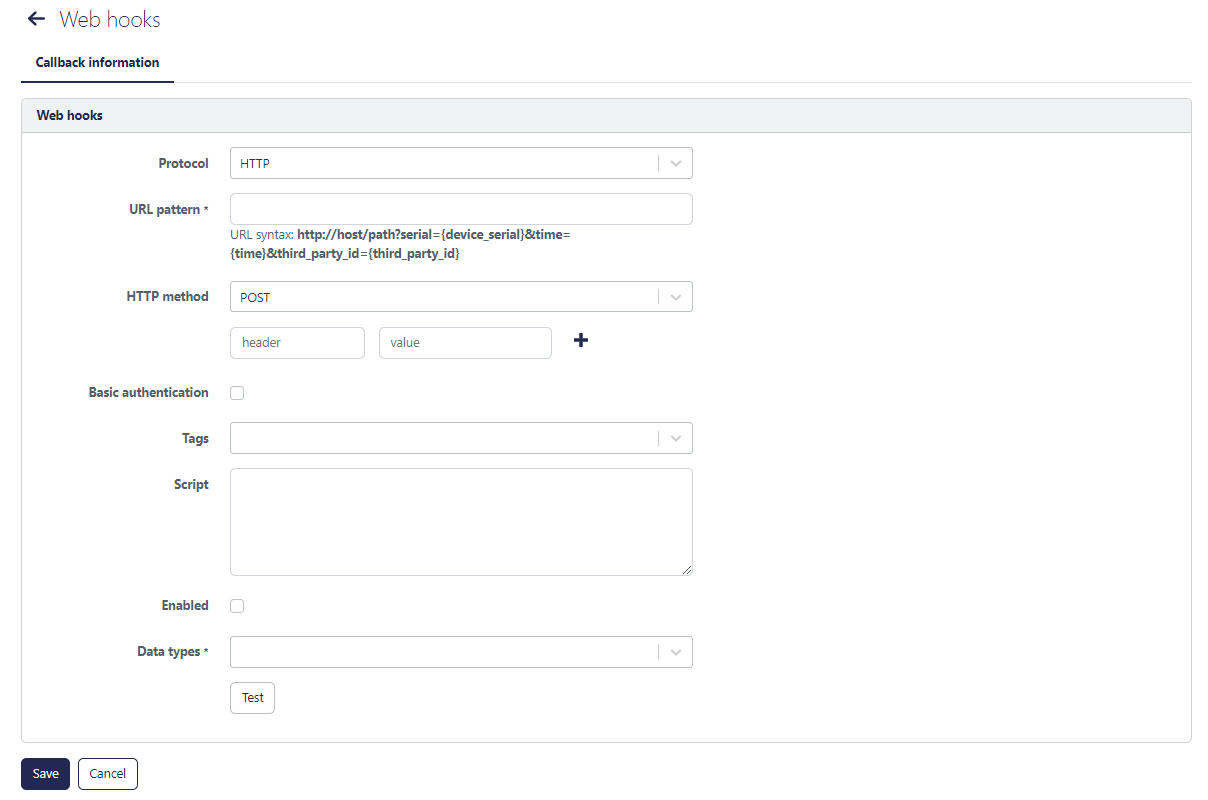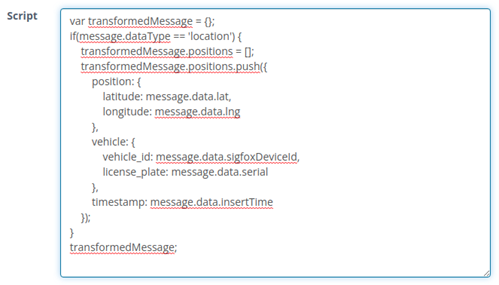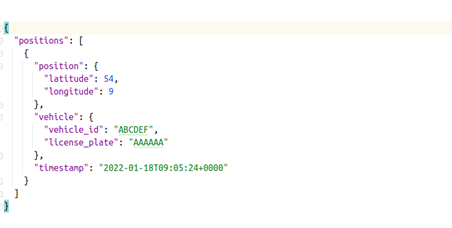webhook HTTP
HTTP endpoint webhook integration
Create or edit a webhook
By configuring a webhook we will make the platform send data to a configurable server end point.
- If you click the
 button.
The following form appears when you select the HTTP protocol:
button.
The following form appears when you select the HTTP protocol: 
Table 1. Callback information webhooks Item Description Protocol Select the protocol: HTTP URL pattern Enter the URL pattern. This is the URL for your server. It may contain placeholders for some parameters like serial, third party id and time (Unix time), which can be useful if your server expects certain request/path parameters HTTP method Select the HTTP method: PUT or POST HTTP headers Add one or more HTTP headers: this can be used to add values like authentication headers. Basic authentication Tags Add a list of device tags. If not empty, only messages for tagged devices will be sent Script an (optional) transformation script to transform the original message payload in a new payload. This is useful when the webhook server expects a certain predefined payload format. See further information below. Enabled enable or disable webhook Data types Select the data type out of the list. See further information below. Test Test correct behavior. This will send a demo message and show successful response code 200 OK - Click the Save button to save the REST push webhook. The webhook is now added to the table.
Script
The script should be written in javascript and should evaluate to the expected new format. There is 1 input variable that can be used: message. The result of your script is the same as what you would get by calling the javascript eval() method on your script. It will evaluate to the last entered statement in your script. As an example
As an example:
In this case transformedMessage is calculated and repeated as a statement on the
last line. The result may look something like:
Data types
The following data types are support:
| Data type | Description |
|---|---|
| all | Agglomerate of all the other data types. Useful if you want to handle all data from a single message/ |
| activity | Sent when there is a device activity (START,STOP,OTM) |
| anchorscan | Sent for tag when it is scanned by an anchor |
| beaconscan | Sent when a device scans a beacon |
| button_press | Sent when button is pressed (for trackers with physical anti-tamper alert |
| device_temperature | Temperature information for device (not a dedicated event) |
| location | Sent when the device fixes a location |
| maintenance_value | Sent when the maintenance parameter value changes |
| network_location | Sent when the device registers a network location |
| orientation_event | Sent when the orientation state changes |
| orientation_state | Sent when the orientation state changes |
| pt100_temperature | Sent when the PT100 sensor registers temperature (periodic or alert) |
| sensor_data_ext | Sent when external sensor data is received by the device |
| sigfox_network_signal_levels | Sigfox network information (base stations and RSSI levels) associated with each message |
| status | Sent when the online/offline status of the device changes |
| third_party_data | Sent when third party data is received for a device |
| tilt | Sent when a tilt event occurs on the device |
| wifiscan | Sent when wifi access points are scanned by the device |